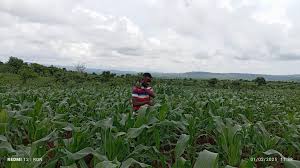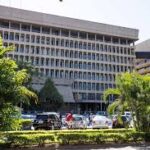By Cecilia Chiluba
Lusaka based Farmer has urged Government to reposition the Farmer Input Support Programme (FISP) as a driver of agricultural transformation and economic empowerment.
Dalitso Mtonga, who is also a Water Engineer, said this can be done by developing a structured, multi-year graduation strategy that provides targeted support during each stage.
Eng. Mtonga stated that this may include reduced input support over time and linkages to affordable credit, extension services, and cooperatives.
He noted that the absence of a defined transition plan for farmers to move from dependency to commercial independence undermines the impact of the programme.
Eng. Mtonga observed that FISP is a vital initiative aimed at empowering small-scale farmers by providing subsidized inputs to support the cultivation of staple rain-fed crops, particularly maize.
“Currently, the FISP package is valued at K6,800 and provides beneficiaries with three bags of D-compound fertilizer, three bags of Urea fertilizer, and 10kg of hybrid maize seed.”
“Under optimal conditions, this package can yield approximately 50 x 50kg bags of maize. At the prevailing price of K350 per 50kg bag, a farmer’s gross revenue may total K17,500,” Eng. Mtonga noted.
He however said while the programme has contributed to increased maize production, several challenges such as seasonal income and dependence, rising cost of living, lack of access to water and limited diversification, market access and value addition, among others, undermine its long-term sustainability.
Eng. Mtonga stated that a number of farmers rely exclusively on a single harvest, leaving them without income for the rest of the year, a move which limits economic mobility and results in continued dependency on FISP, with few players graduating after the intended three-year cycle.
“The current returns from maize farming often do not meet the rising cost of living, making it difficult for farmers to sustain their households, reinvest in farming, or diversify income sources,” Eng. Mtonga noted.
He underscored the need to equip farmer groups with boreholes, smallholder irrigation systems, and solar-powered pumps to enable all-year-round production to reduce over-reliance on seasonal rainfall and allow for multiple cropping cycles as well as income streams.
Eng. Mtonga also called for strengthening of access to structured markets, support aggregation through cooperatives, and investment in agro-processing and storage facilities to reduce post-harvest losses and enhance farmer incomes.
“Facilitate access to affordable credit, insurance products, and reliable input supply chains to build farmer self-sufficiency. Ensure transparency in beneficiary selection, improve monitoring and evaluation frameworks, and align FISP with broader agricultural and rural development policies.”
“By investing in year-round farming infrastructure, promoting diversification, and establishing a clear pathway to independence, FISP can evolve from a short-term relief initiative into a sustainable engine for rural economic growth, food security, and national development,” he emphasized.



